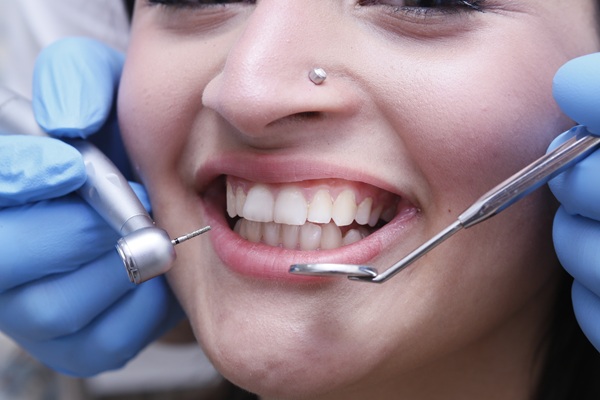The Role of the Jawbone in Dental Implant Placement

If a lost tooth is not replaced by replacement options like dental implants, you may find normal oral functions like eating and speaking somewhat challenging. The smile’s alignment and appearance will also be affected, but that is not all. Tooth loss causes bone deterioration. Dental implants can halt the progression of bone loss, but the success of the procedure requires adequate bone mass. Continue reading to find out the correlation.
Tooth replacement with dental implants
Dental implant restoration involves the surgical placement of titanium posts into the jawbone. The post integrates with the bone as patients recover from the procedure. This natural process is known as osseointegration, and if successful, ensures that the implants are sturdy enough to support the dental restoration that will be attached to them.
Bone mass and tooth loss
The teeth have an important role in jawbone health. When chewing, the teeth stimulate the bone, prompting the bone to continue nutrient supply to the jawbone and other supporting structures. After tooth loss, the jawbone loses the stimulation provided by that tooth. The body will send fewer nutrients since no stimulation is provided. Therefore, the bone’s shape starts to change.
The healthy teeth close to the gap start to shift from their positions, altering the bite. This can increase the risk of oral issues like gum disease, tooth damage, or cavities. Bruxism or TMJ disorder is another issue. Changes to the jawbone’s shape can affect facial structure, causing sagging skin and wrinkles.
Jawbone and dental implants
Implants replace the lost tooth root, restoring the lost stimulation. The procedure is innovative and helps stop further jawbone deterioration. However, the success of the treatment depends on having enough bone mass. After placing the implant post, osseointegration starts, which is essentially the bone integrating with the implants for stability and successful restoration.
Without adequate bone mass, the implant will not have the stability it needs to function. This will lead to loose, shaky implants, and ultimately, implant failure. Having a weak jawbone does not necessarily mean patients will be ineligible to get implants. The dentist might suggest getting a bone graft, which is a procedure to transfer bone mass from another part of the body or external sources to the affected portion of the jaw. The existing bone will integrate with the bone material to provide the strength required to support the dental implants.
If all of the teeth on the jaw are missing, and there has been a significant loss of bone mass, patients may still be able to get implants without undergoing a bone graft. An option is the All-on-4 procedure, which uses four implants, placed strategically along the jaw to optimize the existing jawbone and ensure proper integration.
In conclusion
Dental implants are popular among those seeking tooth replacement options that are reliable and long-lasting. The process stops bone loss in the jaw. If you do not have enough bone mass to get implants, you can undergo a bone graft procedure. To get more information or get started with the tooth restoration process, contact the dental office for an appointment.
Request an appointment here: https://www.marionfamilydentist.com or call Marion Family Dental at (828) 652-6967 for an appointment in our Marion office.
Check out what others are saying about our dental services on Yelp: Dental Implants in Marion, NC.
Recent Posts
Dental implants are a great option for replacing missing teeth. They can last a lifetime and look and act like your natural teeth. However, many factors determine how many implants you need to replace multiple teeth. While having a dental implant placed in your mouth that looks and acts just like your natural teeth sounds…
Dentures and dental implants are two of the most common methods of single tooth replacement. Both are effective, but one might be preferable to the other, depending on the specifics of the patient’s situation and the patient’s preferences and needs. When determining whether dentures or dental implants is the most appropriate for tooth replacement, you should…
If you have a missing tooth, a dental implant and crown can be used as a replacement. The implant restoration replaces both the missing tooth and the root. This option is preferred over other tooth-replacement options because it looks and functions like a natural tooth, and it achieves that without compromising the health of the…
Many people are opting for Dental Implants to replace damaged or missing teeth. Since getting dental implants is considered oral surgery, it is important to follow certain aftercare tips as you would with any other kind of surgery. Following the aftercare tips listed below should ensure your dental implants heal well.While there is likely to…


